An astonishing new science called neuroplasticity is overthrowing the centuries-old notion that the human brain is immutable. Psychiatrist and psychoanalyst Norman Doidge, travelled around the US to meet both the brilliant scientists championing neuroplasticity and the people whose lives they’ve transformed – people whose mental limitations or brain damage were seen as unalterable. We see a woman born with half a brain that rewired itself to work as a whole, blind people who learn to see, learning disorders cured, IQs raised, aging brains rejuvenated, stroke patients learning to speak, children with cerebral palsy learning to move with more grace, depression and anxiety disorders successfully treated, and lifelong character traits changed. Using these marvellous stories to probe mysteries of the body, emotion, love, sex, culture, and education, Dr. Doidge has written an immensely moving, inspiring book that will permanently alter the way we look at our brains, human nature, and human potential.
The Brain That Changes Itself
KSh 1,095.00
An astonishing new science called neuroplasticity is overthrowing the centuries-old notion that the human brain is immutable. Psychiatrist and psychoanalyst Norman Doidge, travelled around the US to meet both the brilliant scientists championing neuroplasticity and the people whose lives they’ve transformed – people whose mental limitations or brain damage were seen as unalterable. We see a woman born with half a brain that rewired itself to work as a whole, blind people who learn to see, learning disorders cured, IQs raised, aging brains rejuvenated, stroke patients learning to speak, children with cerebral palsy learning to move with more grace, depression and anxiety disorders successfully treated, and lifelong character traits changed. Using these marvellous stories to probe mysteries of the body, emotion, love, sex, culture, and education, Dr. Doidge has written an immensely moving, inspiring book that will permanently alter the way we look at our brains, human nature, and human potential.
1 in stock
Related products
-
Student Workbook for Essentials of Dental Assisting, 7th Edition
KSh 7,685.00Reinforce your understanding of dental assisting concepts and practice essential skills! With chapters corresponding to the chapters in Essentials of Dental Assisting, 7th Edition, this student workbook provides a variety of exercises and activities to help you master the role and responsibilities of the dental assistant. Learning activities include review questions, competency sheets, and handy flashcards, each applying your knowledge to preclinical and clinical procedures. It’s an ideal study tool to use in dental assisting courses and to prepare for national board and state certification exams!
-
The Behavioral Health Specialist in Primary Care: Skills for Integrated Practice
KSh 12,600.00Patients with chronic conditions often need psychosocial support and brief counseling to help them make the lifestyle and behavioral changes required to prevent disease complications. This innovative text, with contributions from respected clinicians and researchers in all arenas of behavioral health, provides comprehensive training for all health professionalsóincluding those in medicine, nursing, social work, mental health, and clinical and health psychologyówho desire targeted evidence-based training in behavioral health skills. Rich case examples drawn from typical patient presentations demonstrate the relationship between physical and psychological health and the complexity of behavioral change in chronic illness.
This text is a timely, relevant, and practical resource for all members of the primary care team. It prepares team members to work in the model of patient-centered integrated care in accordance with the recommendations of the Affordable Care Act (ACA) and the National Committee for Quality Assurance (NCQA) medical home standards for identifying patient needs and providing coordinated and comprehensive patient care. The book focuses on knowledge and skills needed for working with the most common chronic conditions such as diabetes, obesity, chronic pain, cardiovascular conditions, sleep disorders, geriatric conditions, cancer-related conditions, and substance abuse. It includes chapters on epidemiological trends in chronic illness and systems medicine. Theories of health behavior and behavioral change and evidence-based interventions provide a foundation for skill development, followed by detailed coverage of the requirements for behavioral management of specific chronic conditions. Sample referrals and consultation notes provide concrete examples of how the behavioral health specialist might respond to a referral.
KEY FEATURES:
- Provides comprehensive graduate-level training for the role of Behavioral Health Specialist
- Describes the health promotion and counseling skills needed to function as part of an integrated health team
- Focuses on proficiencies needed for working with common chronic conditions
- Addresses the psychosocial components of primary care disorders
- Includes case examples demonstrating the relationship between physical and psychological health and the complexity of behavioral change in chronic illness
-
District Laboratory Practice in Tropical Countries
KSh 21,420.00Changes in the organization of health services in developing countries have led to district levels assuming more responsibility for the planning, delivery and quality of community health care. This fully up-dated new edition has been produced to help those working in the district laboratory, and those responsible for the organization and management of community laboratory services and the training of district laboratory personnel. Replacing the previous publication Medical Laboratory Manual for Tropical Countries, this book provides an up-to-date practical bench manual, taking a modern approach to the provision of a quality medical laboratory service.
-
Health Care Information Systems: A Practical Approach for Health Care Management 4th Edition
KSh 15,000.00BESTSELLING GUIDE, UPDATED WITH A NEW INFORMATION FOR TODAY’S HEALTH CARE ENVIRONMENT
Health Care Information Systems is the newest version of the acclaimed text that offers the fundamental knowledge and tools needed to manage information and information resources effectively within a wide variety of health care organizations.
It reviews the major environmental forces that shape the national health information landscape and offers guidance on the implementation, evaluation, and management of health care information systems. It also reviews relevant laws, regulations, and standards and explores the most pressing issues pertinent to senior level managers. It covers:
Proven strategies for successfully acquiring and implementing health information systems.
Efficient methods for assessing the value of a system.
Changes in payment reform initiatives.
New information on the role of information systems in managing in population health.
A wealth of updated case studies of organizations experiencing management-related system challenges. -
Kumar and Clark’s Clinical Medicine
KSh 17,470.00Now in its tenth edition, Kumar & Clark’s Clinical Medicine is fully updated and revised under a new team of editors.
Featuring new chapters covering:
o Diagnosis: the art of being a doctor – helping readers to develop a confident clinical method in interactions with patients
o Elderly medicine, frailty and multimorbidity
o Public health
o Surgery
o Evidence-based medicine
o Sepsis and the treatment of bacterial infection
o Haematological Oncology
o Venous thromboembolic disease
o Hypertension
o Men’s health
Enhanced clinical skills content has been added to most chapters – helping readers tailor history-taking and examination skills to specific specialty-based contexts.
Bonus online content – including self-assessment, common clinical and international cases, cardiovascular and respiratory audio material, clinical examination videos and bite-sized topic pages covering major conditions.
Heavily revised throughout with smaller chapters to ease navigation, added introductions and system overviews included for most chapters.Edited by Adam Feather, MBBS, FRCP, FAcadMEd; David Randall, MA, MRCP; and Mona Waterhouse, MA, MRCP. Contributors comprise consultants at the top of their fields, paired with younger doctors closer to the exam experience, to ensure authority and relevance. International Advisory Board, led by Professor Janaka de Silva and Professor Senaka Rajapakse, providing guidance for global coverage from across the world. Members of the International Advisory Board have contributed to the ebook with additional content to amplify areas of clinical importance in their parts of the world.Enhanced e-book accompanies the print book, for ease of transportation and use on the move.
Featuring new chapters covering:
o Diagnosis: the art of being a doctor – helping readers to develop a confident clinical method in interactions with patients
o Geriatric medicine, frailty and multimorbidity
o Public health
o Surgery
o Evidence-based medicine
o Sepsis
o Haematological Oncology
o Venous thromboembolic disease
o Hypertension
o Men’s health
o Obstetric medicine
Enhanced clinical skills content has been added to most chapters – helping readers tailor history-taking and examination skills to specific specialty-based contexts. -
Introduction to Epidemiology
KSh 4,820.00Recognized by Book Authority as one of the best Public Health books of all time, Introduction to Epidemiology is a comprehensive, reader-friendly introduction to this exciting field. Designed for students with minimal training in the biomedical sciences and statistics, this full-color text emphasizes the application of the basic principles of epidemiology according to person, place, and time factors in order to solve current, often unexpected, and serious public health problems.Students will learn how to identify and describe public health problems, formulate research hypotheses, select appropriate research study designs, manage and analyze epidemiologic data, interpret and apply results in preventing and controlling disease and health-related events. With real-world examples in the form of case studies and news files in each chapter, Introduction to Epidemiology is an accessible and effective approach to learning epidemiology.The Eighth Edition features:- Same organization as the prior edition allowing for easier transition- New or expanded coverage of the models of causation, methods of age adjustment, age-period cohort models, incubation and latency periods, and receiver operating characteristic (ROC) curves- Clearer connection between statistical inference and causal inference- New and updated practical examples and News Files help solidify concepts and show real-world application- Updated tables and figures throughout- Access to Navigate 2 online learning materials, including a comprehensive and interactive eBook, student practice activities and assessments, learning analytics reporting tools, and more- A built-in adaptive learning feature enables students to take self-assessments before or after reading a chapter. Based on their performance they can map out their own custom study plan that directs them to the areas of the text to review.
-
OSCE in Obstetrics and Gynecology
This textbook is in accord with the motto of FOGSI which is dissemination of updated knowledge and education in the ever-expanding science of Obstetrics and Gynecology. It is a unique bank of practically based OSCE questions and answers based on the latest clinical guidelines which contains elaborative information in a very reader-friendly colorful layout. This book has been primarily written for undergraduate and postgraduate students to guide them in their preparation for their professional examinations. However, it will be a very handy and informative bank of knowledge, especially on the practical and clinical aspects of obstetrics and gynecology for all practitioners as well.
- This is a one-of-a-kind textbook purely based on the format of OSCE, i.e., Objectively Structured Clinical Examination stations, covering the fields of Obstetrics as well as Gynecology exhaustively.
- Liberal use of pictures and illustrations will not only aid the students in their preparation but also make the process of reading enjoyable.
- An exhaustive collection of chapters ranging from the basics of Obstetrics and Gynecology to recent advances like Endoscopy in Gynecology, Reproductive Medicine, and Imaging in Obstetrics.
- Topics like Fetal Ultrasound in First and Second Trimester, Screening and Congenital Malformations have been extensively covered with the help of images and illustrations making the topics simple and easy to understand.
- Liberty has been taken to provide detailed answers of some topics as well as pertinent references for further reading.
-
Community-Based Participatory Research for Health: Advancing Social and Health Equity 3rd Edition
KSh 7,840.00The definitive guide to CBPR concepts and practice, updated and expanded
Community-Based Participatory Research for Health: Advancing Health and Social Equity provides a comprehensive reference for this rapidly growing field in participatory and community-engaged research. Hailed as effective by the Centers for Disease Control and Prevention, CBPR and CEnR represent the link between researchers and community and lead to improved public health outcomes.

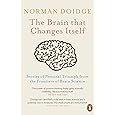

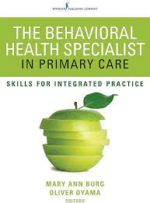
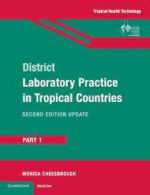
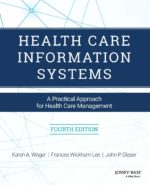
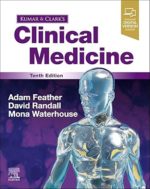

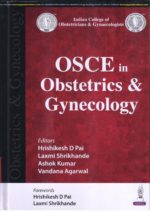
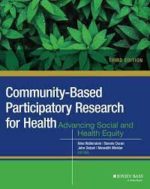
Be the first to review “The Brain That Changes Itself”